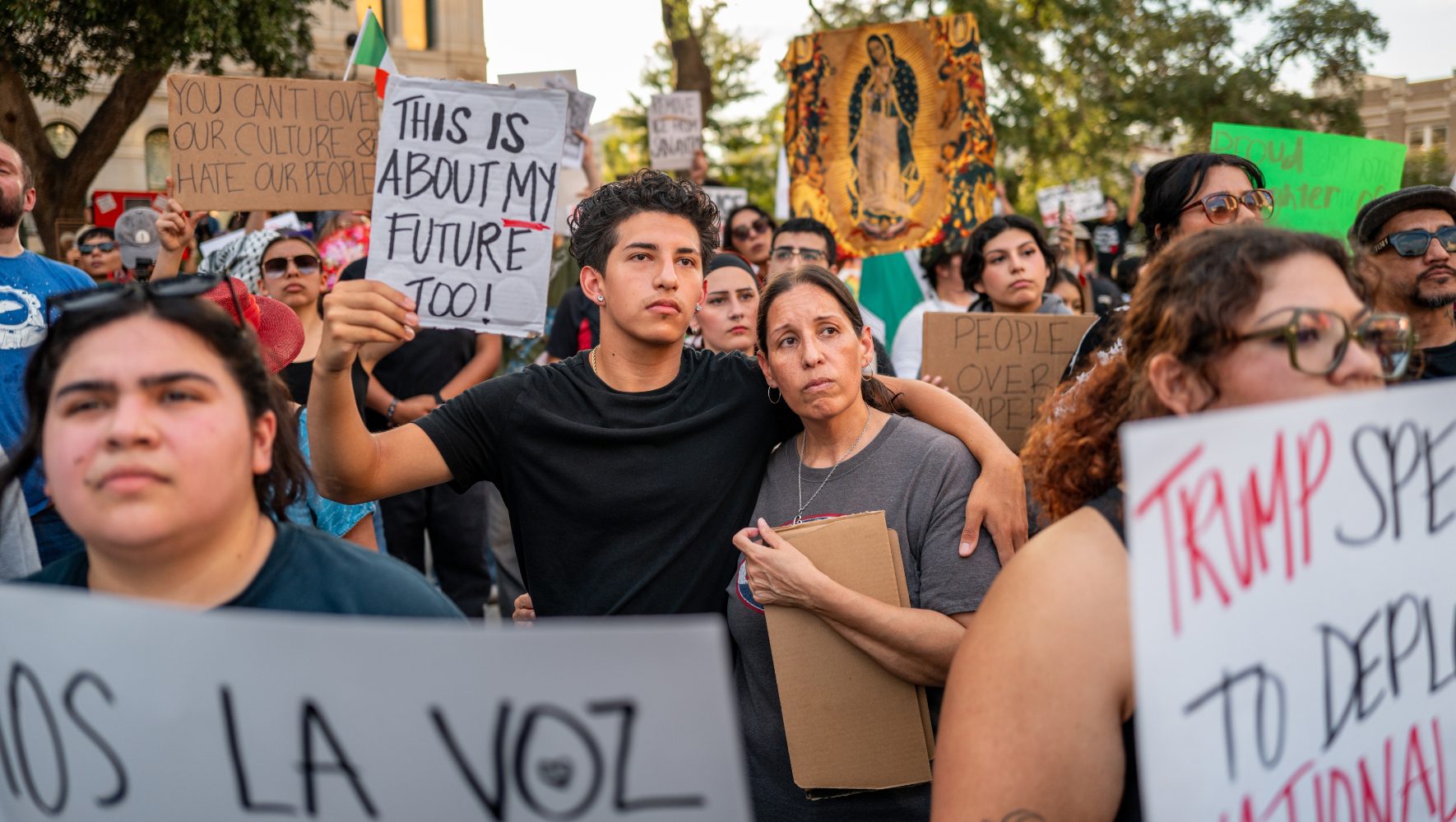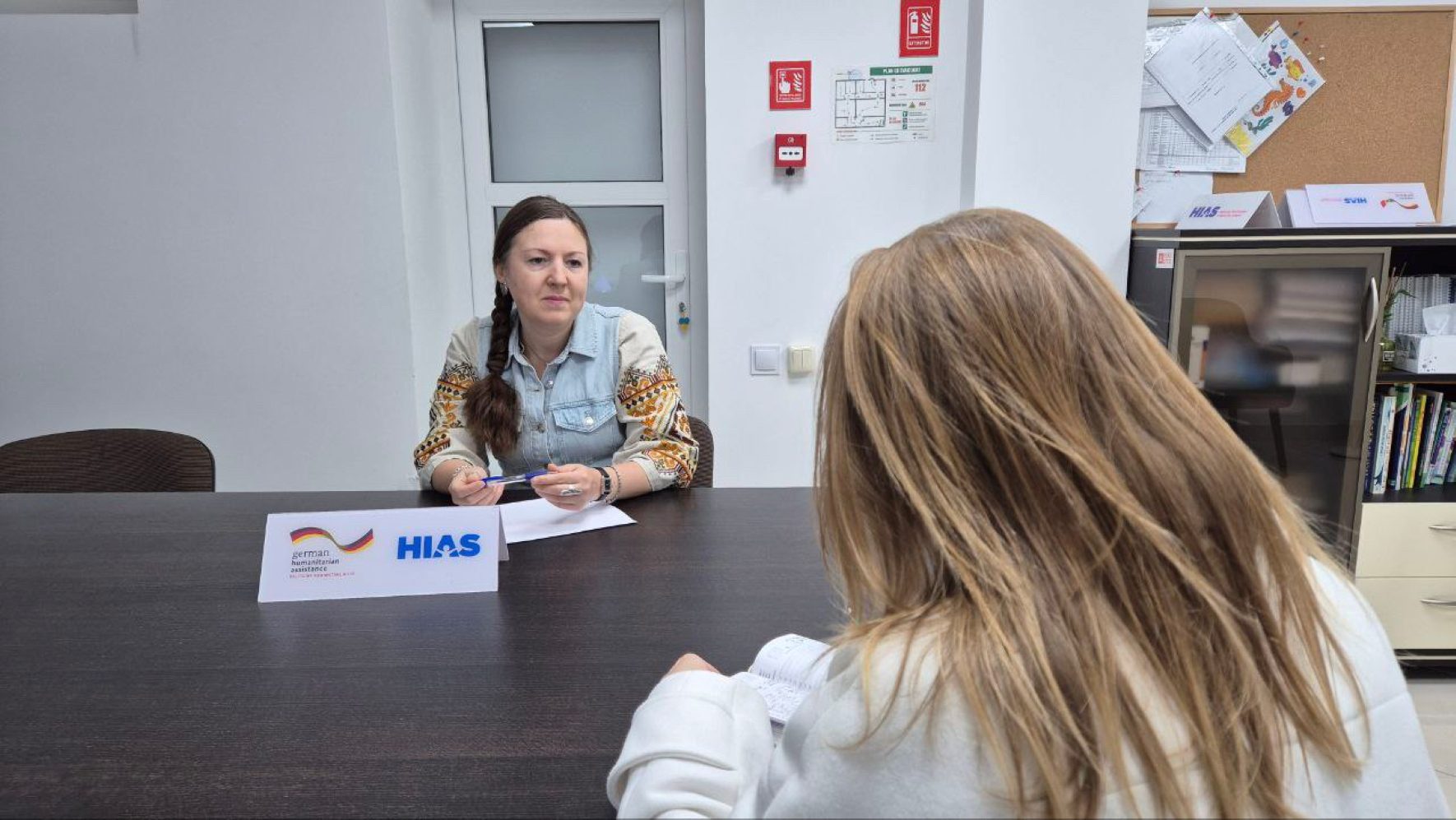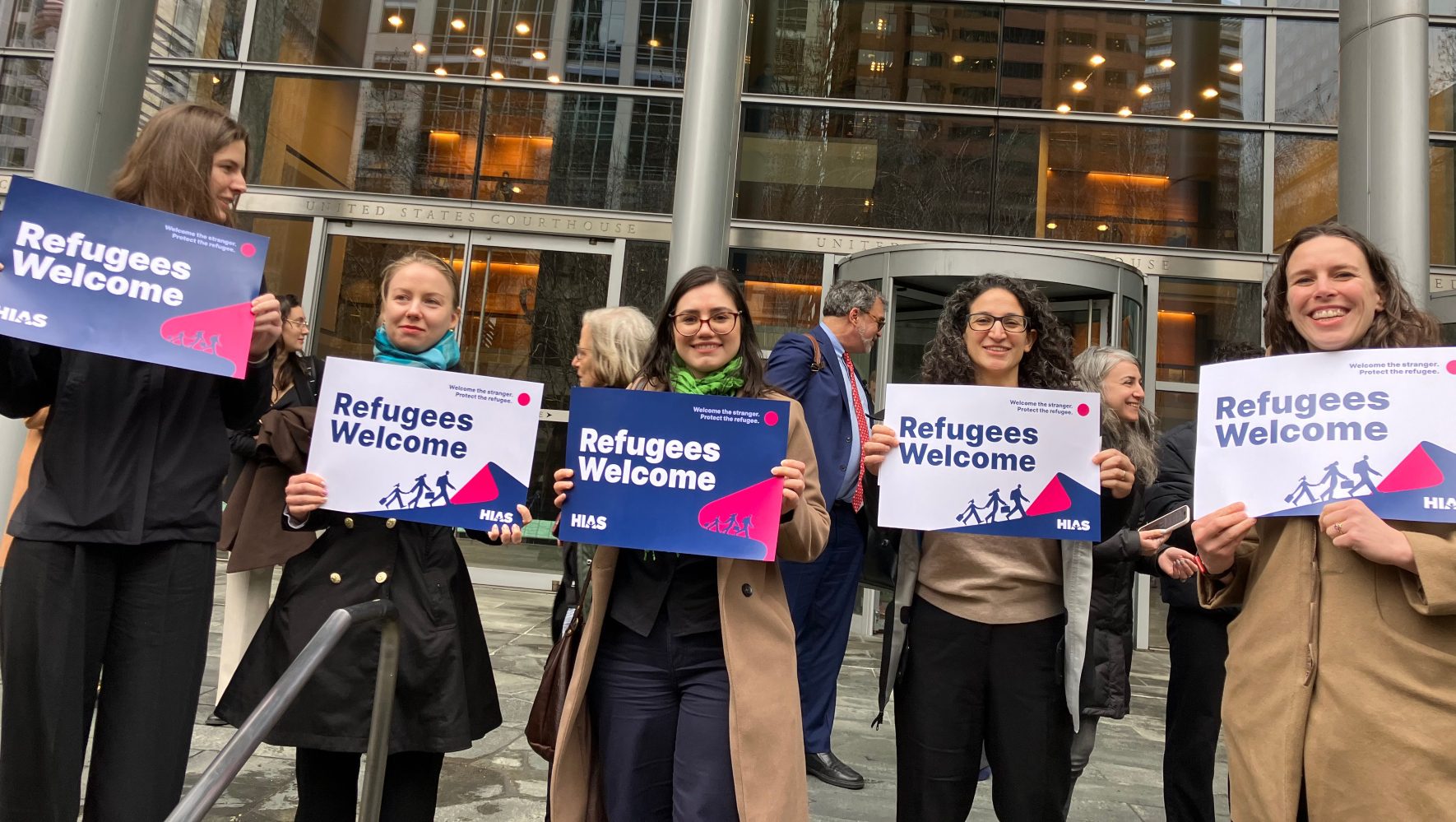We Used to Take Refugees Because They Were Jewish. Now We Take Them Because We're Jewish. (Vox)
Sep 26, 2015
[[{"fid":"1216","view_mode":"default","fields":{"format":"default","field_file_image_alt_text[und][0][value]":"","field_file_image_title_text[und][0][value]":""},"type":"media","attributes":{"style":"height: 239px; width: 400px; margin: 5px; float: right;","class":"media-element file-default"}}]]Vox's Dara Lind recently spoke with Mark Hetfield about HIAS and why helping refugees is a Jewish issue. She writes:
When I went to Rosh Hashanah services last week, I expected an allusion to the global refugee crisis — perhaps a reminder that we ought to welcome the stranger, because we were strangers in the land of Egypt. I didn't expect the rabbi to spend several minutes urging the congregation to get involved in helping refugees from Syria and other countries. And I certainly wasn't expecting ushers to hand out cards at the end of the service telling people what they could do to help, made by HIAS — the Jewish organization for refugee resettlement and immigration advocacy (formerly the Hebrew Immigrant Aid Society).
HIAS has helped refugees and immigrants settle in America for more than a century. But for most of that period, the refugees they were helping were Jews: Eastern European Jews in the first half of the 20th century, then Jews fleeing the Soviet Union during the Cold War.
Nowadays, most refugees aren't Jewish. HIAS still sees "welcoming the stranger" as a Jewish issue, but most American Jews don't consider it as important as, say, the Israel/Palestine conflict. That's why the call to action at Rosh Hashanah was so surprising.
I talked to Mark Hetfield, the president and CEO of HIAS, about how American Jews got disconnected from their refugee tradition — and whether the increased global attention to the Syrian refugee crisis is beginning to rekindle a Jewish interest in welcoming the stranger.
Click here to read the full interview over on Vox.



